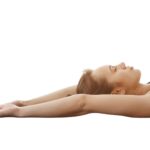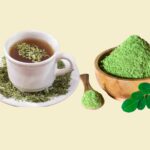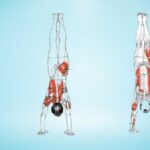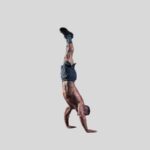Why Do Massages Make You Dehydrated
Table of Contents
It’s common to feel thirsty and tired after massage therapy. Massage can induce mild, temporary dehydration through circulatory changes, sweating, and other mechanisms. Understanding why do massages make you dehydrated can help masses counteract and prevent dehydration.
The Physical Effects of Massage
Massage creates responses which may contribute to dehydration:
- Increases circulation and blood flow to tissues
- Releases lactic acid buildup, cellular waste and toxins
- Relaxes muscle fibres and fascia, allowing for elongation
- Can lower blood pressure temporarily after a session
These widespread physical changes alter the fluid balance.
Factors That Contribute to Dehydration
Several massage-related factors lead to fluid loss:
- Sweating induced by increased circulation, warm rooms or exertion
- Fluid loss through circulatory changes and metabolite release
- Osmosis as tissues warm and cell membranes become more permeable
- Diuretic effects of certain essential oils used during massage
This combination of factors can result in notable fluid loss during a massage session.
Signs of Dehydration Following Massage
Monitor for common dehydration symptoms post-massage:
- Thirst, dry mouth or headaches
- Dizziness or lightheadedness after the session
- Fatigue, lethargy or muscle weakness
- Nausea, abdominal cramps or constipation
- Dark yellow urine or reduced output
Prompt rehydration can readily resolve these symptoms.
Related: Can You Feel Sick After a Massage?
Risks of Dehydration After Massage
Inadequate fluid replenishment post-massage poses risks:
- Strains the cardiovascular system
- Impairs muscular repair, recovery and flexibility gains
- Increases post-massage muscle soreness and discomfort
- May prolong other common side effects like headaches
- Can cause electrolyte imbalances like low sodium
Rehydrating is key to maximizing massage benefits.
Populations Especially Vulnerable
Certain clients are more prone to dehydration:
- Older adults with a less efficient sense of thirst
- Those with pre-existing conditions like diabetes or kidney dysfunction
- Clients taking diuretics, laxatives or certain medications
- Athletes and very active individuals with higher sweat rates
- People living and exercising in hot climates and environments
Therapists should emphasize rehydration to these groups.
Staying Hydrated Before and After Massage
Follow these tips to maintain fluid balance:
- Drink plenty of water in the hours before a massage
- Limit alcohol, caffeine and sodium intake prior
- Urinate just before the session to flush the kidneys
- Replenish with electrolytes and fluids soon after
- Continue sipping water for several hours post-massage
When to Consult a Doctor
Seek medical care for:
- Signs of severe dehydration like racing heart rate
- Lasting dizziness, headache or profound fatigue
- Known kidney dysfunction or electrolyte disorders
- History of cardiovascular complications from dehydration
- Chest pain, leg swelling or shortness of breath
Related: 8 Innovative Ways To Integrate Most Hydrating Fruits Into Your Daily Diet
Preventing Dehydration in Ongoing Practice
Communicate needs clearly with your massage therapist:
- Notify them of any pre-existing conditions or medications
- Schedule appropriately around physically demanding activities
- Increase water intake before and after sessions
- Provide feedback if the pressure needs adjusting
Listen to your body and allow proper rest post-massage. With a few precautions, dehydration can be readily avoided.
A Word From Blogzah
Massage therapy provides immense benefits but can also lead to mild, temporary dehydration in some cases. Awareness of the mechanisms behind this fluid loss allows clients to take targeted precautions.
First, understand that massage increases circulation, metabolite release, sweating and other physiological effects that can impact fluid balance. Sensations of thirst, fatigue or dizziness post-massage indicate the need for rehydration. Monitor urine colour as an objective measure.
Second, vulnerable populations like older adults, those on diuretics or those with pre-existing conditions require extra hydration care before, during and after massage. Therapists should provide guidelines catered to client needs. Listen carefully to internal thirst signals.
Third, proper planning can help counteract fluid loss. Drink ample water in the hours preceding massage and avoid alcohol or caffeine, which have diuretic effects. Urinate before the session. Have electrolyte fluids on hand to replenish after. Continue hydrating in the next few hours.
Fourth, while mild dehydration is common, severe or lasting symptoms warrant medical follow-up. Dehydration can hinder muscle recovery, prolong soreness and cause electrolyte imbalances. Prompt oral rehydration usually resolves mild symptoms.
Finally, communicate your needs clearly with your massage therapist. Notify them of any conditions or medications that may impact hydration. Schedule appropriately around activities and climate. You can tailor the massage pressure and duration to minimize fluid loss. With proper hydration protocols, the rewards of massage can be enjoyed safely.
















